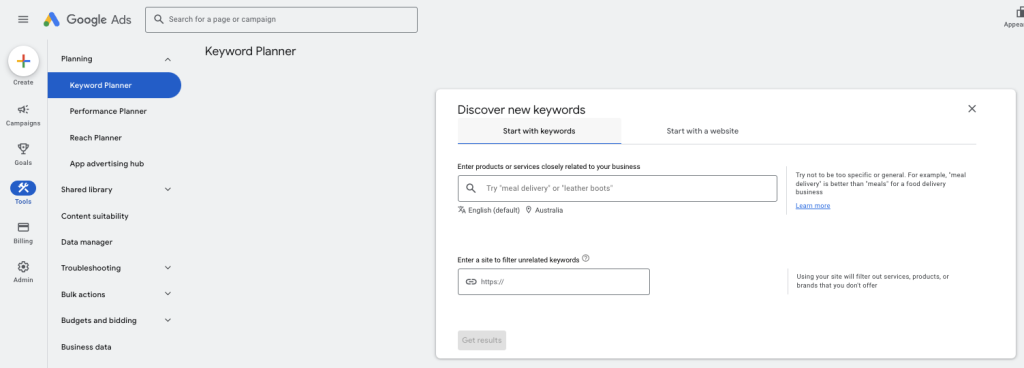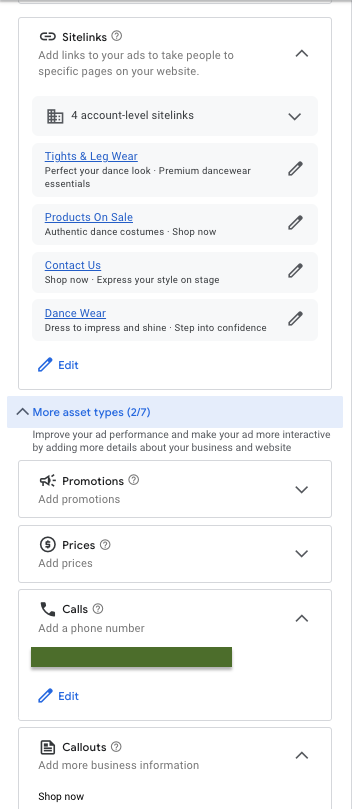When it comes to digital advertising, knowing how to create compelling Google Ads copywriting that cuts through the noise and drives conversions is a crucial skill.
With millions of businesses vying for attention, writing ad copy that resonates with your target audience and compels them to take action is essential.
In this comprehensive guide, we’ll walk you through the essential steps of Google Ads copywriting that converts, complete with tips to help you customise ad copy for your business needs.
Table of Contents
Know Your Audience and Target Keywords
The foundation of any successful Google Ads campaign lies in understanding your target audience and the keywords they use to search for your products or services.

You can do this by creating detailed buyer personas, which will provide valuable insights into their pain points, desires, and search habits. Consider questions like:
- What problems are they trying to solve?
- What are their interests and hobbies?
- How do they typically spend their free time?
Use tools like Google’s Keyword Planner to identify relevant keywords with high search volume and commercial intent.

These keywords should reflect the language your audience uses when searching for your offerings.
Example: If you’re targeting ballet dancers in Sydney, your target audience might be young girls aged 8–12 and their parents. Relevant keywords could include “ballet shoes Sydney,” “ballet leotards,” and “ballet tutus.”
Expand Your Keyword Strategy
Consider Long-Tail Keywords: Long-tail keywords are more specific phrases that can attract targeted traffic. For example, “comfortable ballet shoes for beginners” might attract a more specific audience than “ballet shoes.”
Use Negative Keywords: Implementing negative keywords helps prevent your ads from showing in irrelevant searches, saving you money and ensuring your ad budget is used efficiently.
Craft Captivating Headlines and Descriptions
Your headline is the first thing potential customers see, so it needs to be attention-grabbing and compelling. Keep it clear, concise, and benefit-driven. Use your target keywords strategically, but avoid stuffing your ads with keywords.
Writing Effective Headlines
Focus on Benefits: Highlight the advantages your product or service provides.
Incorporate Keywords Naturally: Make sure they fit within the overall message without sounding forced.
Example: “Unique Dance Costumes for Sale”, “Stunning Dance Apparel” or “Find Your Dance Costume Today”
Don’t Miss Out on Ad Descriptions
Ad descriptions are your chance to shine and show what makes you the best choice. Here’s how to make them more attractive:
Highlight Your Superpowers: Do you offer lightning-fast delivery to Sydney dance studios? Unbeatable customer service that keeps clients coming back? Brag about it with simple, clear language.
Example: “Sydney’s Fastest Dancewear Delivery: Order by 2 PM, Get It Today!”
Sweeten the Deal with Perks: Offering free shipping on all orders over $50 or overnight options for last-minute costume emergencies can make your offer even more tempting.
Example: “Free Shipping on Orders Over $50 | Overnight Delivery Available”

The Digital Strategy Advisory Sessions provide you with the best in digital expertise from experts in the field.
Focus on Benefits, Not Just Features: Don’t just list what dancewear products you sell; explain how they make life better for Sydney dance studios and their students.
Instead of “High-quality ballet shoes,” try “Ballet shoes so comfortable, your dancers will feel like they’re dancing on air.”
Example: “Elevate Your Dance Performance with Our Premium Dancewear. Our costumes are so stunning they’ll take your breath away!”
Speak Directly to Your Ideal Customer’s Needs
Imagine your perfect customer searching online. What questions are they asking? What problems are they trying to solve? When crafting your Google Ads copywriting needs to address those needs and anxieties directly.
Engage Your Audience
Spark Curiosity with Questions (Optional): A well-placed question can grab attention and invite viewers to engage with your ad. For example, “Struggling with finding the perfect ballet shoes? We have the solution!”
Showcase the Value Proposition: People search online to solve problems or fulfil their desires. Your ad should clearly show how your product or service delivers the benefits they crave.
Leverage Ad Extensions
Ad extensions are a powerful tool that can enhance your ad’s visibility and effectiveness by providing additional information without cluttering the main message.

Types of Ad Extensions
Site Link Extensions: Direct users to specific pages on your website, such as product categories or special offers.
Callout Extensions: Highlight additional features or offers, such as “24/7 Customer Support” or “Locally Owned.”
Location Extensions: Encourage in-store visits by showing your business address and distance to the user.
Use A/B Testing to Find What Works
Experimenting with different versions of your Google Ads copywriting to find the elements that resonate most with your audience.
Use A/B testing to try various headlines, descriptions, and CTAs, then analyse performance data to make informed decisions.
Conclusion
Google Ads copywriting that converts is both an art and a science. By understanding your audience, crafting clear and compelling headlines, focusing on benefits, and using the tools available, you can develop ads that drive meaningful results for your small business.
Remember, the key is to continually test and refine your strategies to find what resonates best with your audience.
To learn more about Google Ads copywriting that sells, book a free call with our Google ads specialists.

Online Advertising & Support
Save valuable time and money with a complete online marketing plan, created and managed by experts so you can focus on achieving your business goals.



